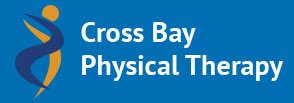With the recent “polar vortex” and multiple storms that have pounded the Midwest and East Coast, winter weather related falls and injuries are definitely a concern. Unstable surfaces from ice and snow are unavoidable winter hazards. Ankle sprains, twisted knees and back injuries are incredibly common during the cold months.
Use de-icing compounds or rock salt to keep walkways and steps safe. Wear boots or shoes with traction to avoid sliding. Know your environment to avoid tripping over objects that are covered in snow. Avoid carrying heavy or awkward loads. Engage the core to maintain balance on questionable surfaces. Take small steps to reduce the risk of falling or slipping. If you do feel yourself falling, don’t try to stop yourself with your arms or hands. This is a natural human response to falling but often results in broken bones. If possible, land on your side or buttocks.
If shoveling is a necessary evil, warm-up first. Use the knees to lift and push snow rather than lifting and throwing. Take care not to use the back and wear layers so you can adjust for temperature changes. Take breaks when needed. Pushing through fatigue often results in injuries. Remember to hydrate after shoveling. Although it’s cold outside, dehydration is still a threat.
Strengthen the large muscle groups and core BEFORE you suffer an injury. Squats and push-ups are two perfect bodyweight exercises that require no equipment and work compound muscles. Learn how to contract your abdominals and gluteal muscles to retain balance. The physical therapists at Cross Bay Physical Therapy in Howard Beach can teach you how to strengthen your core and improve your balance with therapeutic exercise such as range of motion training and overall strengthening and conditioning.
If you do suffer a sprain or strain, use the RICE (Rest, Ice, Compression and Elevation) technique to bring down immediate swelling and discomfort.
Torn ligaments and strains may require mobility aids, gait retraining and conditioning. Cold packs, hot packs, and transcutaneous electrical nerve stimulation (TENS) can help soft tissue injuries recover more quickly. Joint mobilization and soft tissue manipulation may also be necessary to restore range of motion and full function. Contact Cross Bay Physical therapy to set up your recovery and rehabilitation program.
By Benjamin Bieber
